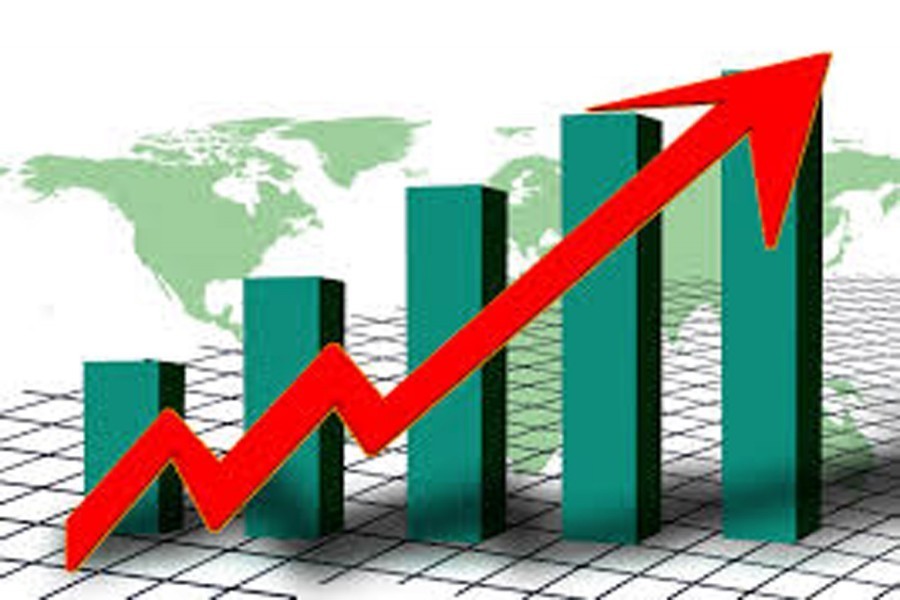Shirin Runa and Delwar Hossain Jewel usually buy the school books and stationery for their two children at the start of the year. This year, they couldn’t. They have to wait another month before they can afford to buy all the books, get the school bags and pay for new school uniforms.
These are the kinds of difficult choices families are facing due to the rising inflation in the country.
To Runa and Jewel, the long school closure due to the COVID-19 pandemic now seems like something of a relief, reports bdnews24.com.
The family has struggled for quite some time. As the price of necessities kept rising, so did the family's spending. Eventually the one-income household was spending more than it was earning every month.
Runa was trying to buy a schoolbag for her daughter in the Banasree residential area of Dhaka on Tuesday.
The high cost of living was driving her to despair, she said.
Most of her monthly budget was spent on the basic necessities, such as food.
“You can cut some corners in other places, but you can’t really do much to trim your food budget. Still, when I went to do my monthly shopping, I had to leave some things out.”
Though they may not know the economic definition of inflation, those who have to manage their family’s day-to-day budget, like Runa, are feeling the strain in recent months.
The impact of the spiralling cost of living is being felt across the board. Along with low-income families, middle-income households are also struggling to make ends meet with their limited means. Instead of building for the future, they are being forced to draw on their life savings to stay afloat.
The added expenses are cutting into people’s ability to weather hospital bills, accidents or engage in festivities. Inevitably, they are resorting to loans.
Nazer Hossain, a labourer from Bogura living in Dhaka, is feeling the same strain. In 2017, Nazer used to earn around Tk 600-700 from paddling a rickshaw for 12 hours a day in the capital.
He covered his daily expenses, which included house rent, food and rickshaw fee, with Tk 300 at most. This meant he could send home Tk 9,000 every month without a second thought.
Although it wasn't a lot of money, it was still enough for him to get by comfortably.
Those were the good old days.
Five years on, his monthly income has risen to about Tk 17,000-18,000, but he is in distress. The increase in earnings has done little to raise his standard of living as most of the money is consumed by the surging prices of necessities.
Low-income people scramble to stand first in a queue for goods sold by a dealer of the Trading Corporation of Bangladesh outside the railways ministry in Dhaka. The crowds are equally packed in the queues for men and women. Photo: Mahmud Zaman OviLow-income people scramble to stand first in a queue for goods sold by a dealer of the Trading Corporation of Bangladesh outside the railways ministry in Dhaka. The crowds are equally packed in the queues for men and women. Photo: Mahmud Zaman Ovi“I could eat a meal for Tk 60-70 before but now, you won’t get anything below Tk 120. A cup of tea costs Tk 6 instead of Tk 3 -- even the price of a glass of water has doubled to Tk 2.
The rent he pays to the owner of the rickshaw has risen from Tk 70 to Tk 120, while the living cost at hostels doubled from Tk 500 to Tk 1,000, according to Nazer.
He has had to hike rickshaw fares in order to keep up with the rising costs. A trip from Mirpur’s 60 Feet to Farmgate would cost Tk 70 before, whereas now, Nazer charges up to Tk 120 on this route.
“Our lives on Tk 8,000-9,000 then, and now on Tk 14,000-15,000 remains the same. That’s due to the higher prices of essential products. But our lives haven't seen any improvement or decline.”
PRICE HIKE ONSLAUGHT
In Bangladesh, numerous people lost their jobs during the pandemic between 2020 and 2021, while some small business owners were forced to cut their losses and head back to their hometowns.
According to the Bangladesh Bureau of Statistics, or BBS, the average inflation rate has remained steady at 5.5 percent over the past five years.
In simple terms, a product that cost Tk 100 in 2017 would now be priced at Tk 131.41.
Dr Ahsan H Mansur, an economist and executive director of the think tank Policy Research Institute, disagrees with the inflation data provided by the BSS.
The data does not match the reality of people’s experiences, he said.


